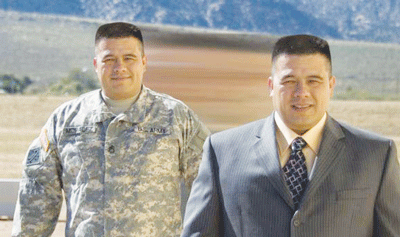Once again, our military finds itself in the midst of a drawdown. Although this is not a new phenomenon for the military, the impacts of the drawdown are vast. Troop levels will be cut, getting promoted will be tougher, budgets will be more constrained and staying in the Army will be more diffi cult. As a result, tens of thousands of soldiers will transition from active duty to the civilian sector by 2017. The question looming is, how will these soldiers prepare themselves for the transition and to enter a competitive workforce?
One of the ways in which soldiers can prepare for the future is through Continuing Education. Recognizing the challenges ahead, Fayetteville Technical Community College launched in January its Military Occupational Specialty degree program, a comprehensive program designed to convert military education and experience into college credit. Although converting military education to college credit is not a new concept, FTCC’s approach to this model is new. Without question, soldiers gain invaluable knowledge, training, and experience while serving in the Army. Following a quick consultation with our offi ce, a soldier immediately knows exactly how many credits he or she will receive for military learning experiences.
FTCC assessed military course curriculums, reviewed American Council on Education and Service member Opportunity College (SOC) program documents, and consulted with FTCC academic department heads to develop the MOS Degree Maps. The maps are broken down by MOS and skill level and identify a range of college courses and credit hours soldiers would receive for their military education. Moreover, maps target three key populations: special operations, non-special operations and healthcare as well as joint forces. To date, FTCC has developed 114 MOS Degree Maps representing 43 different MOSs. Our goal is to create a map for every MOS.
Although the associate degree in general education is the primary degree offered, soldiers can also apply their credit for prior military learning to other areas such as culinary arts, criminal justice, psychology and more than 150 different areas of study. The AGE is the number-one way to convert knowledge gained through military training into college credit. The AGE is transferable and a pathway to earning a higher-level degree later at a four-year institution. FTCC offers a range of course formats from face-to-face classes (day or evening) to online and hybrid classes, or a combination of these as well as unit classes.
Career Management Fields include:
• Adjutant General Corps
• Air Defense Artillery
• Aviation
• Civil Affairs
• Engineer
• Field Artillery
• Infantry
• Medical Service Corps
• Military Police
• Military Intelligence
• Ordnance
• Psychological Operations
• Quartermaster Corps
• Signal Corps
• Special Forces
• Transportation
Whatever educational field soldiers are interested in, FTCC stands ready to help them achieve their goals
.For more information or to register for classes, visit FTCC’s Fort Bragg Center located in F-Wing, Bragg Training and Education Center (BTEC) or call (910) 678-1050 or by email at fortbragg@faytechcc.edu.
To see a complete list of MOS and Skill Level maps, visit www.faytechcc.edu/ft_bragg/transition/credit-for-learning.asp.
Photo: Tens of thousands of soldiers will transition from Active Duty to the civilian sector by 2017. FTCC has programs in place to make it a smooth transition.

 How to resolve AdBlock issue?
How to resolve AdBlock issue? 








